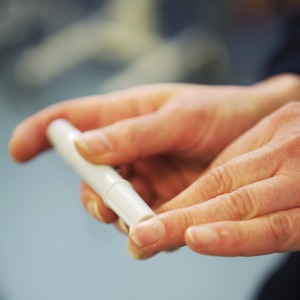Type 2 diabetes care for people under 40 must improve, this year’s National Diabetes Audit (NDA) has concluded.
According to the report, produced annually by the Health and Social Care Information Centre, younger patients were much less likely to receive all NICE-recommended screening tests than in older age groups, while patients of all age groups remain unlikely to attend a structured education programme on managing their condition.
In response, the authors recommended that commissioners put a ‘greater focus’ on designing services that are ‘more appropriately suited’ to younger age groups, while structured education should be given a higher priority when local commissioning decisions are made.
The data for 2012/13 showed that only 46% of patients under 40 were given the full range of checks – including for example BMI checks, foot surveillance and smoking prevalence – compared with 62% of patients overall. Meanwhile only 24% of under-40s met recommended targets for cholesterol, blood pressure and glucose levels, compared with 37% among all patients.
The report acknowledged that reaching younger people ‘with busier lives’ was challenging and called on commissioners to design services better suited to this group of patients.
It said: ‘Younger people with diabetes who are not achieving treatment targets contribute a disproportionate share of the burden of diabetes disability and premature mortality. Greater focus on designing services to make them more appropriately suited to the needs of those who are working, students, and living full lives needs to be considered.’
On structured education, the report said this was ‘a key foundation of effective self-care but presently seems to be assigned low priority’, as only 2.4% of people with type 1 diabetes and 6% of people with type 2 diabetes were offered structured education last year. The take up rates were even worse, with only 1.1% of type 1 diabetes patients and 1.6% of type 2 diabetes patients actually attending structured education during that time.
Dr Andrew Brewster, a diabetes GPSI in Berkshire and former diabetes lead at Berkshire West Federation of CCGs, said the low take up was ‘an infrastructure problem’, with CCGs lacking the time to set up good structures.
He said: ‘It is always going to be difficult to ensure that all of a practice’s diabetes patients can be given all of the screening tests. For younger people we, as GPs, need to act as salesmen and sell them the importance of attending for these screening tests.’
It comes as the 2015/16 NICE QOF menu had recommended that diabetes indicators were bundled with achievement dependent on GPs bringing patients through the whole care process, however the GPC said earlier this week that this change is not set to go ahead.
Pulse October survey
Take our July 2025 survey to potentially win £1.000 worth of tokens














